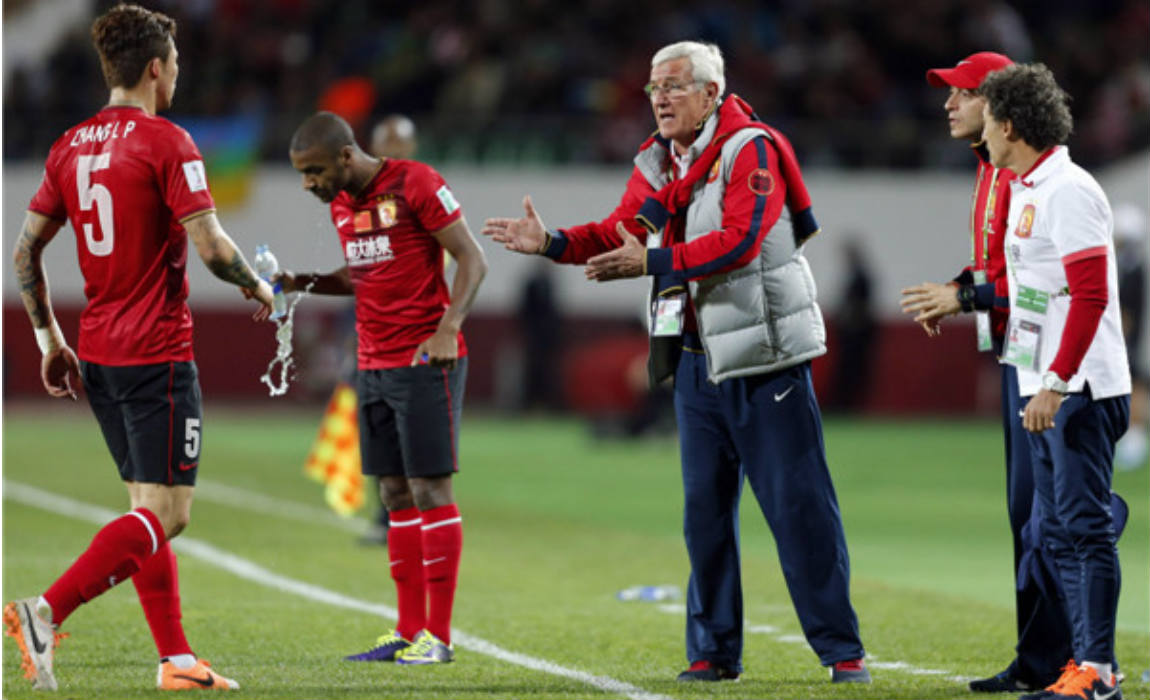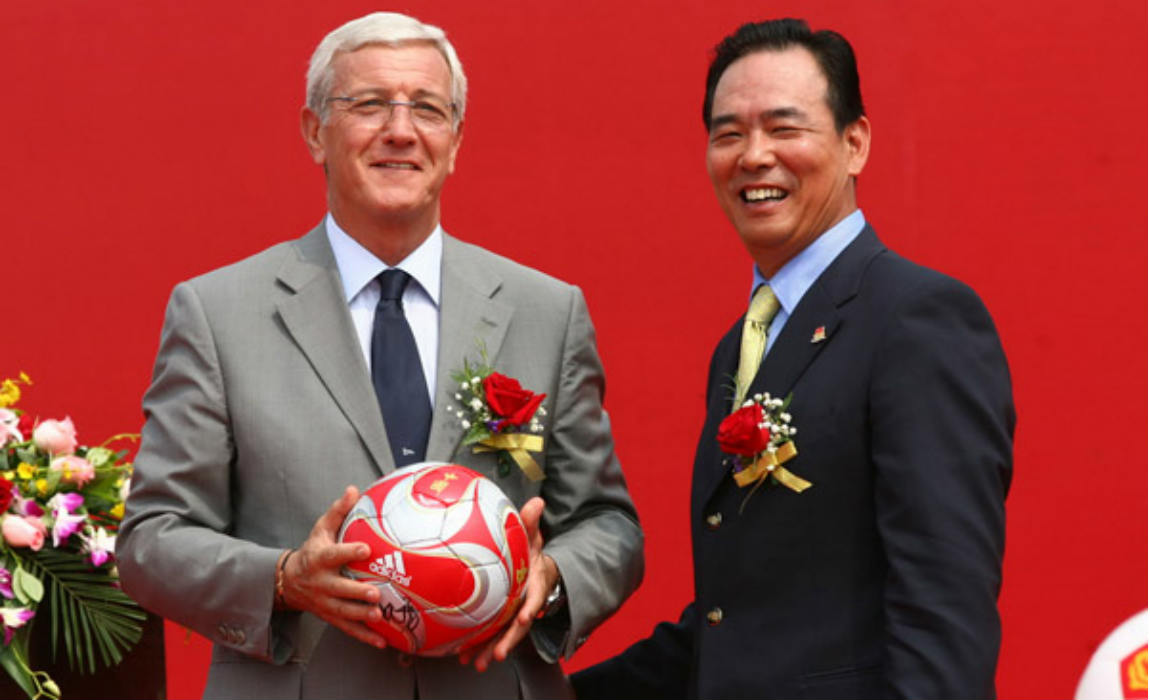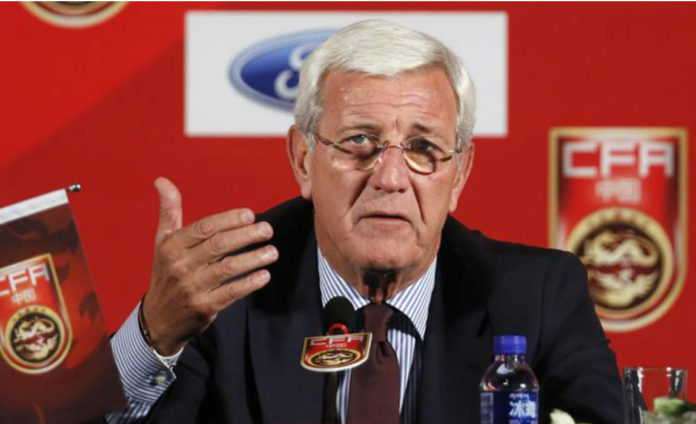Italian Marcello Lippi is looking to start the new year with his first victory at the helm of the Chinese men’s national team. The World Cup-winning coach will lead China’s challenge against Iceland at the soon-to-be inaugurated China Cup in January 2017.
Lippi improved China’s performance a great deal during his first official match in November, helping to produce a dominating display. But he ultimately failed to bring the team a desperately-needed win over Qatar in the final Asian qualifying round for the 2018 World Cup.
With less than three months to go before the do-or-die match against South Korea, the stakes could not be higher for Team China. The China Cup, an A-grade international event acknowledged by the world football ruling body FIFA, is regarded as an important platform for the host team to hone their skills ahead of what remains a long-shot bid for Russia 2018. The China Cup is set to bring some impressive teams into the mix, including world No. 4 Chile and star-studded Croatia.
 To kick off the first edition of this international football championship on January 10, China will take on Iceland, who currently rank 21st and pulled off a miracle in 2016 by making the last eight of the European Championship for the first time.
To kick off the first edition of this international football championship on January 10, China will take on Iceland, who currently rank 21st and pulled off a miracle in 2016 by making the last eight of the European Championship for the first time.
If Lippi manages to inspire China to push the elite European team to perform at their best level, or even pushes them hard enough to score a victory, it could bring about a much-needed confidence boost for his team.
Confidence, it seems, is the name of the game for Lippi in his current work with Team China.
“It’s not only about improving in tactics and competitive level. Rebuilding confidence for the team is more important at the moment,” said Lippi in his first prematch conference before the clash against Qatar.
Football officials appear to be behind Lippi’s vision, and see the China Cup as a huge opportunity for the national squad.
Zhang Jian, Vice President of the Chinese Football Association (CFA), said that the China Cup will provide an opportunity both for Lippi to tune up his squad, and for the Chinese players to sharpen their skills for the remaining World Cup qualifiers, which are set to resume in March.
Meanwhile, Wang Jianlin, President of the Wanda Group (which initiated the China Cup under the auspices of CFA), also has high hopes for the tournament.
“We are only inviting overseas teams that ranked among the top 30 in the FIFA world rankings,” said Wang. “We hope that China Cup will become a great platform for the Chinese national team to play against top-class teams in the world, and also a great opportunity to promote the development of the sports industry in China.”
According to the player list, Lippi will use this chance to observe the team’s young talent; he did not up call any regulars from the national squad.
In the latest roster, there are no familiar names such as captain Zheng Zhi, central-defender Feng Xiaoting and the target man Gao Lin, who are all from Guangzhou Evergrande.
Instead, Lippi will give a chance to several under-23 players like Wang Jinxian and Gao Zhunyi, seemingly trying to bring some fresh faces onto the field.
 The Chinese men’s team have struggled for quite some time. Their sole appearance at the World Cup was in 2002, when they failed to score a single goal. The country’s failure to build a solid base for youth training is regarded as the main reason behind its struggles on the pitch.
The Chinese men’s team have struggled for quite some time. Their sole appearance at the World Cup was in 2002, when they failed to score a single goal. The country’s failure to build a solid base for youth training is regarded as the main reason behind its struggles on the pitch.
In contrast, China’s upcoming opponent Iceland has made big steps in that respect. In the tiny nation with a population of just 330,000, there are some 600 coaches with UEFA’s level-B licenses and 200 more with A-level licenses. More importantly, half of these elite coaches are coaching junior teams. This focus on player development is seen as the main reason that Iceland has improved its world ranking by 100 places in the past four years.
The first China Cup will be played in Nanning, capital of southwestern China’s Guangxi Zhuang Autonomous Region. The winner between China and Iceland will play against the winner between Chile and Croatia for the crown on January 15.
Organizers say that both the Wanda Group and the CFA have inked a 10-year agreement regarding the China Cup, which is set up as a yearly event, aiming to increase the number of invited top-30 teams to eight by 2019.




